Step 3: Mowing and Tidying
If you plan to mow before guests arrive, it's best to do it a few days ahead of time. This gives any stray grass clippings time to disappear, so they won't stick to anyone's feet. Don’t be tempted to do a harsh low mowing just before; this risks scalping the lawn and creates bare patches in the weeks ahead, which will invite in weeds. It’s better to do two or three mows a few days apart, removing just the very tips of the grass foliage each time.
Pro Tip: Edging paths and driveways always adds an extra sharpness to your lawn. If you have a dog, do a quick poo check just before everyone gets there.
Step 4: Fix Bare Patches
Bare patches aren't just unsightly, they're the perfect opportunity for weeds to push in. Make patch repair a priority when getting your lawn ready for summer party season. To fix the bare patch, remove any dead grass or weeds and gently cultivate and loosen the soil to create a nice soft and crumbly surface. Next scatter some Yates Seed'n'Feed over the patch and gently rake into the surface. It's very important to water the patch regularly as the new grass establishes.
Yates Seed'n'Feed is an easy to use lawn repair product containing all the ingredients needed to fix bare patches and thicken an existing lawn. It has a dual action: it includes fast-germinating grass seed and fertiliser, to feed new and existing grass for up to 12 weeks.
You can repair and renovate your lawn all year round, as Yates Seed'n'Feed contains the same seed varietals as Yates Sow Anytime Lawn Seed, so it will germinate at temperatures as low as 3°C.
Step 5: Holiday Weed Control
Often the first thing you notice about a lawn is weeds. Broadleaf weeds like Capeweed, Dandelion, Catsear and Plantain (Lamb's Tongue) are a different shape and colour to the lawn grass, really stand out and ruin the look of a lawn. Luckily, it doesn't need to be complicated or time consuming to create a weed-free lawn. It's really easy to use Yates Weed’n’Feed, so you don’t have to come back from holidays to find a lawn-full of weeds! Before you head off on a road trip, give your lawn a shot of Weed'n'Feed.
A word of warning though; while selective weedkillers like Weed'n'Feed don't usually harm grass, during extended hot weather or drought, highly stressed lawns are much more sensitive and vulnerable to damage than usual. Hot summer conditions don't really suit most NZ grass species, so they need to use up a lot of their stored energy to get through the season. This means, when the weather is very dry and hot, your grass is likely to be suffering from stress (even if it's not obvious).
If you apply Weed'n'Feed to a stressed, dry lawn, it can cause a dramatic response, in the form of yellowing or burnt grass. This is why weedkiller labels include warnings not to apply in high temperatures, or in the full heat of the afternoon. You can avoid that risk by watering your lawn well for 2 weeks prior to applying Weed'n'Feed, so the grass isn't suffering from lack of moisture.
Kikuyu may be drought-tolerant, but it's especially sensitive to selective weedkillers, which means there's a higher risk of burning it with Weed’n’Feed or Yates Turfix. The risk is lessened during winter while kikuyu is in its dormant phase, but much higher during hot weather or periods of drought. We always recommend choosing Yates Weed’n’Feed Granular for kikuyu and couch lawns.
Step 6: Aeration
If your lawn's going to be well and truly ‘loved’ and trampled by lots of happy feet (and paws), it'll benefit from being aerated. Aeration helps loosen up hard, compacted soil underneath the lawn, making it easier for essential water and oxygen to penetrate down to reach grass roots. Aeration also makes it physically easier for grass roots to grow.
Aerating the lawn can be as simple as pushing a garden fork down through the grass, about 10cm deep into the soil, then gently lever the fork back and forth a little to open up the holes from the fork tines. Do this multiple times over the lawn, moving the fork a few centimetres each time. It's hard work, but the results are really worth it!
Pro Tip: For large lawns, you can hire mechanical aerators that save a lot of effort. More substantial lawn 'coring' for peak aeration is best left for autumn, as it leaves visible holes that last for ages in a dry lawn.





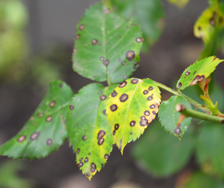
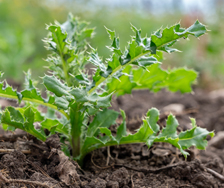
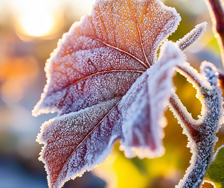


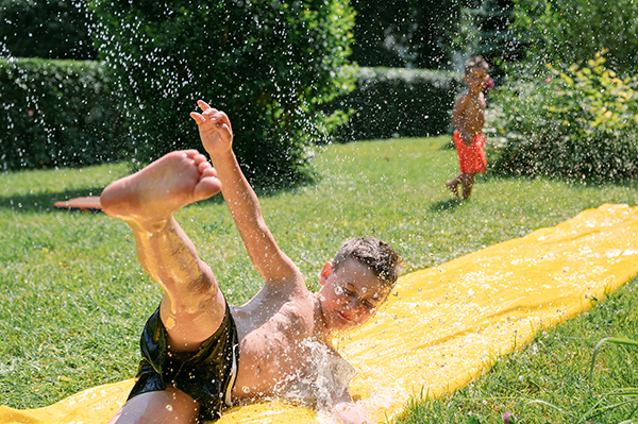
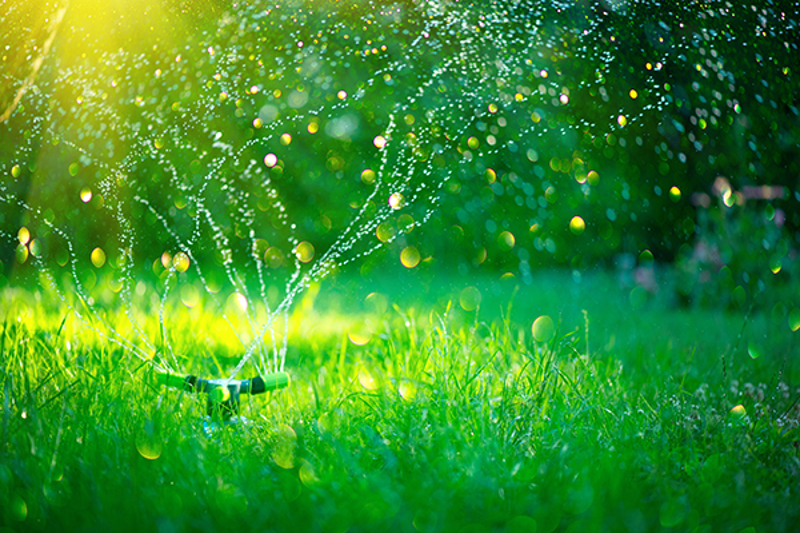

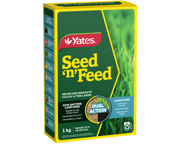
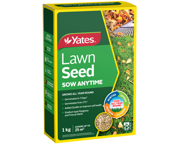




Share
Share this article on social media